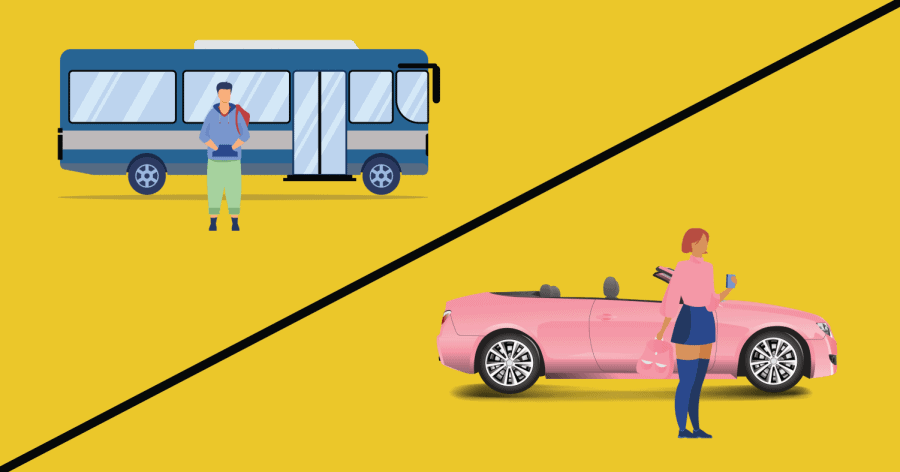Opinion | UA has a class problem
Here’s how we can fix it.
February 24, 2021
I was watching YouTube one Saturday morning when I ran across a video entitled, “8 Insane Things Rich People Think Are Normal” by The Financial Diet. As a person well-aware of privilege, the video made me notice more of the issues associated with the American class system – like elitism in hiring based on the college an applicant attended. But the video left me wanting more. Classism, after all, is an issue that affects students way before they graduate.
The University of Alabama, while not the worst culprit, does have a class problem. And in order to rectify the sins of those before us, we have to begin by looking at our role in maintaining this system.
The University of Alabama is not all bad, but it is a microcosm of American society at large. Some programs help level the playing field for the disadvantaged among us, but those measures are largely undone by other exclusionary organizations and “opportunities” available to students. For every Lucy’s Legacy and BRIDGE, organizations meant to promote inclusion, there are others that bar students from entry either by price or by practice, such as Greek organizations.
Student workers suffer from being severely underpaid and overworked. Take University Programs, for example, which seems to shell out hundreds of dollars for elaborate events but only pays its workers a starting wage of under $10 an hour. The lack of pay from campus jobs sometimes forces students to seek work off campus, which can cause students to feel disconnected.
A majority of events and opportunities created for students are held during business hours, which means that the working class often misses them. For example, a lower-income student would struggle to participate in prestigious student organizations such as the Blackburn Institute. The process to join requires two interviews, availability for orientation and regularly scheduled events if accepted. What might be an easy decision for some is a double-edged sword for student workers: A student can suffer financially to achieve distinguished honors or gain financial responsibility by missing out on valuable opportunities – considering that suffering financially is even an option.
It’s an inordinate decision that students from disadvantaged backgrounds should not have to make.
The compensation awarded to students in on-campus jobs typically ranges from $7.25-$10 per hour, with most jobs starting at $7.25 per hour. On-campus student workers are limited to a maximum amount of 20 hours per week, which, starting at the lowest rate, totals to an average of $145 per week. While some students may be able to work for this wage because of additional resources available to them, other students resort to off-campus jobs because they offer more workable hours and in most cases better pay as well. Students that work off campus miss the opportunity to network with professors and other campus professionals that they might otherwise have met in an on-campus role, simply because the University does not compensate its student workers with livable wages.
What happens when disadvantaged students graduate and have to compete with their privileged counterparts? Well, the class issues that followed them through college follow them to the workplace. Candidates that are otherwise equally talented are separated by leadership opportunities in academic spaces or from exclusive organizations or prestigious, unpaid internships. It’s not impossible for low-income students to acquire meaningful experiences on campus, it just requires sacrifices that higher-income students don’t have to make.
The idea that college is an inherent equalizer or a gateway to the middle class vastly ignores the disparities that exist in higher education.
If the administration desires to level the playing field it should change the way students are compensated. And it should also require a sliding scale for fees associated with student organizations and more flexibility for gaining membership.
If we can acknowledge that unpaid internships are designed to favor the upper class among us, then we must acknowledge that the honors societies and civic engagement programs that require time and labor without compensation also favor upper-class students.
The University of Alabama may not be the most culpable university when it comes to classism, but the structure of its programs and its poorly regulated organizations create an environment where students are still exposed to classist ideas. It is our job as students to observe and speak up about the barriers presented to us, and it is the job of the administration to rectify the present inequities. If diversity, equity and inclusion is an objective of real importance to the administration, we need to include class in the discussion.





















